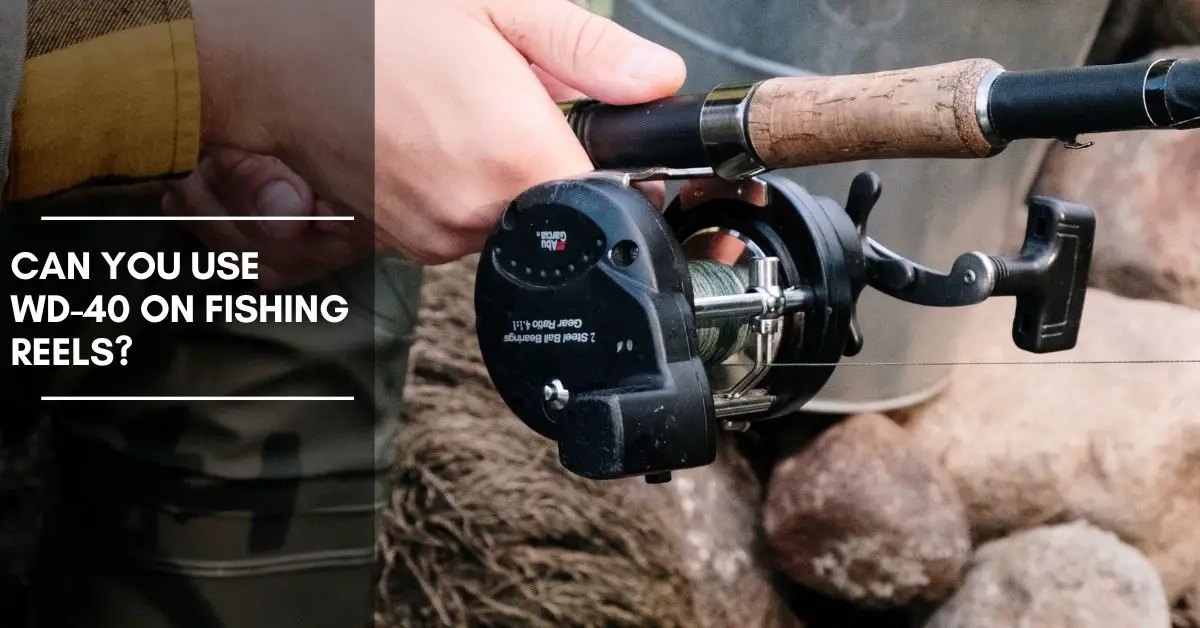Taking care of your fishing equipment is essential to ensure its longevity and performance. One of the most debated topics among anglers is the use of WD-40 on fishing reels. This article will delve into this matter, discussing the pros and cons, as well as providing alternative solutions to keep your reels in top shape.
Fishing reels require regular maintenance to function optimally, and the choice of lubricant is a critical factor in this process. In this article, we will explore whether WD-40 is a suitable option, and if not, what other products might be more appropriate. By the end of this article, you will have all the information you need to make the best decision for your fishing reels.
Now that we’ve covered the basics, let’s dive deeper into the world of fishing reel maintenance and explore the implications of using WD-40 on your precious equipment.
The Debate: Is WD-40 a Suitable Lubricant for Fishing Reels?
Understanding WD-40
Before we discuss whether WD-40 is suitable for fishing reels, let’s take a moment to understand what WD-40 is. WD-40 is a popular water-displacing spray, initially designed to prevent corrosion in missile parts. It’s composed of various petroleum-based solvents and oils, which can penetrate, clean, and protect metal surfaces.
Pros of Using WD-40 on Fishing Reels
Some anglers swear by WD-40 as a fishing reel lubricant due to its ability to displace water and prevent corrosion. Here are some benefits of using WD-40 on fishing reels:
- Quickly removes dirt and grime: WD-40 can dissolve dirt, grime, and old grease, making it easier to clean your fishing reel.
- Displaces water: As a water-displacing spray, it can help prevent rust and corrosion by driving out moisture from the reel’s components.
Cons of Using WD-40 on Fishing Reels
Despite the advantages mentioned above, there are several reasons why using WD-40 on fishing reels may not be the best idea:
- Not a long-lasting lubricant: WD-40 is not a dedicated lubricant, and its lubricating properties are temporary, meaning it evaporates quickly and doesn’t provide lasting protection.
- May damage certain components: Some reel components, such as plastic or rubber parts, can be damaged by WD-40.
Alternatives to WD-40 for Fishing Reel Maintenance
Considering the potential drawbacks of using WD-40 on fishing reels, it’s essential to explore alternative lubricants specifically designed for fishing reel maintenance. Here are some recommendations:
Fishing Reel Oils and Greases
Fishing reel oils and greases are specially formulated to provide long-lasting lubrication and protection for your fishing reels. These products are designed for specific components and can help keep your reel functioning smoothly.
Silicone-Based Lubricants
Silicone-based lubricants are an excellent alternative to WD-40 for fishing reel maintenance. These lubricants provide superior water resistance, don’t damage plastic or rubber components, and offer long-lasting lubrication.
Proper Fishing Reel Maintenance and Care
To ensure the longevity and performance of your fishing reels, follow these essential maintenance tips:
- Clean your reel regularly: Regular cleaning helps prevent dirt and grime buildup, which can impair your reel’s performance.
- Lubricate your reel properly: Use appropriate lubricants specifically designed for fishing reels, such as reel oils, greases, or silicone-based lubricants.
- Store your reel correctly: Keep your fishing reel in a cool, dry place when not in use to prevent corrosion and damage from moisture.
- Inspect your reel for wear and tear: Regularly check your reel for any signs of damage, such as frayed lines or worn components, and replace them as necessary.
- Avoid over-tightening the drag: Over-tightening your reel’s drag can cause undue stress on the internal components, potentially leading to premature wear and tear.
In Conclusion
In summary, while WD-40 has some beneficial properties for cleaning and water displacement, it is not recommended as a long-term lubricant for fishing reels.
Instead, consider using specialized fishing reel oils, greases, or silicone-based lubricants that offer superior protection and longevity for your equipment. By following proper maintenance and care practices, you can ensure your fishing reels remain in optimal condition for many successful fishing trips to come.
FAQ
Q: Can I use WD-40 to clean my fishing reel? A: Yes, WD-40 can be used to clean dirt and grime from your fishing reel. However, it should not be used as a long-term lubricant, as it evaporates quickly and does not provide lasting protection.
Q: What type of lubricant should I use for my fishing reel? A: Use fishing reel-specific oils, greases, or silicone-based lubricants, as these products are specially designed to provide long-lasting protection and lubrication for your reel’s components.
Q: How often should I clean and lubricate my fishing reel? A: It’s recommended to clean and lubricate your fishing reel after every use or at least once per season, depending on how frequently you fish.
Q: Can I use household oils or greases on my fishing reel? A: While some household oils or greases may provide temporary lubrication, they may not offer the long-lasting protection and water resistance that dedicated fishing reel lubricants can provide.
Q: Does WD-40 harm plastic or rubber components in fishing reels? A: WD-40 can potentially damage certain plastics or rubber components in fishing reels. It’s always best to use lubricants specifically designed for fishing reels to avoid any potential issues.

